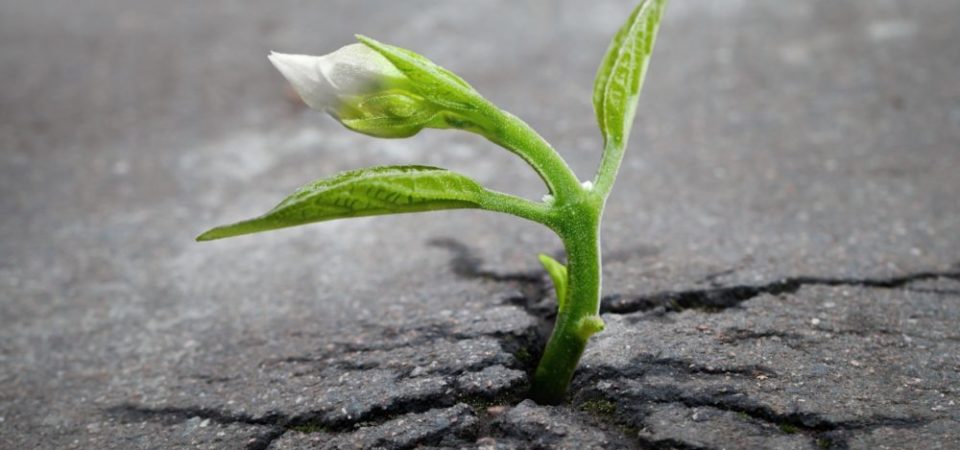I’m always happy when celebrated people make consequential remarks about issues that matter. One of the most influential people on Earth these days, the naturalist Jane Goodall, recently delivered a consequential whopper. If you’re paying attention, you can’t avoid the reality that humanity is on a dead-end course. I’m thinking consequential, as in, “Could humans go extinct?” It haunts me to the core to know that the answer to that question is yes… Yes, very possibly, the human story on Earth may be headed toward oblivion.
No apologies if human extinction sounds overheated and alarmist. “Very possibly'” is what the science tells us. We are currently on a course that could make it so hot, so extreme, in so many ways our planet could become largely, or maybe, even entirely uninhabitable. Even if there were just a five percent chance of extinction for most or all of life on Earth, is that a risk we should be taking? The fact is, we don’t know if the possibility of human extinction is five percent, a hundred percent, or some dark place in between. What we do know is that our extinction is a possibility, a real possibility. The risk is real, if not quantifiable. Science points out ominously that humans are driving life on Earth to the brink. So, it’s awesome when we pause for a memorable quote from someone of consequence.
Before I get to Dame Jane’s weighty comment, I want to express how much her example has meant to me. I began following Jane Goodall’s adventures with the chimps in Gombe, Tanzania, Africa when I was a college student. Since then, her tireless quest to speak for nature, to warn about the failing health of our planet, to urge us to channel our better selves, has inspired my commitment to the only biosphere we have. Back to the memorable warning from Jane Goodall. It was delivered early in June 2020 to a conference on farming and food security. She said, “If we don’t do things differently, we’re finished.” She was talking about the indefensible way humans exploit animals and nature.
Consider this reality: it took from our human beginnings to the year 1970 to get to a population of 3.5 billion. It took about two hundred thousand years to grow from zero humans on Earth to 3.5 billion. Since 1970, in just fifty years, human numbers have exploded to 8 billion. We are still adding about 80 million more humans every passing year. We could be at 10 or even 12 billion by the end of this century.
Can we afford to ignore that indisputable reality? The consequences are clear for all to see. We’ve got massive deforestation and topsoil loss. We’re exploiting the world’s precious aquifers to exhaustion. We’re sucking the life out of our oceans and filling them with plastic waste. We’re pumping billions of tons of heat-trapping greenhouse gases into our atmosphere every passing year. We’re submerging coastal regions with sea level rise, and causing every kind of extreme weather, translating to unprecedented droughts and wildfire in some parts of the world while others are hit with ever more powerful storms and flooding. For young people across our planet, the dream of a better life grows dimmer by the day.
On top of all that, the entirety of humanity is now hampered by global-scale infectious diseases. And most recently, we find ourselves immersed in an Earth-scale dialogue on the meaning of human dignity, caused by the latest in an increasing number of deaths of innocent black people at the hands of police.
Life on Earth is unraveling. The evidence is unambiguous. It fills the news, 24/7, for all to see. It’s dysfunction on a global scale.
Jane Goodall’s weighty comment puts the human challenge in simple terms. She said, “If we don’t do things differently, we’re finished.” Simple; concise; prophetic. The science tells us Jane Goodall’s warning is spot-on. Humans must massively change our ways. We must transform our relationship with nature and with each other.
The Fermi Paradox
In his upcoming book, The Trials of Gaia, Earth scientist Andrew Yoram Glikson writes about a little-known concept from the renowned physicist Enrico Fermi. Cultural sage Noam Chomsky said the following about ‘Fermi’s Paradox:
“I’ve always suspected that the solution to Fermi’s paradox is that if life somewhere is unfortunate enough to develop ‘higher intelligence’ it will find a way to destroy itself through nuclear war or the destruction of the environment.” –Noam Chomsky
Fermi’s Paradox suggests that the reason we’ve never had any contact with any advanced alien civilizations elsewhere in the universe is that when they’ve come as far as we have, they invariably manage to destroy themselves.
The reality on Earth now certainly feels as though Fermi’s Paradox is dangerously close to becoming real given the nuclear threat that looms and the massive, human-induced destruction of the natural world we all depend on.
The Roots of Humanity’s Undoing
Since the beginnings of agriculture, perhaps 12,000 years ago, humans have defined themselves as superior to nature. Our written history has been shaped by dominance; humans dominating and relentlessly exploiting nature; men dominating and subjugating women; cultures behaving tribally, marking the human journey with cruelty and bloody conquest. Our social, economic, political, and environmental record has been forged in that rapacious cultural crucible. Now, we humans are at the end of our rope. As we became the dominant form of life on Earth, we proliferated to the extreme. We’ve come to a point where we’re taking everything the planet has to offer for ourselves. Nature is under siege by us. The biosphere we depend on is in freefall.
The good news is, on every continent, more and more people are shaking off denial and indifference. The opportunity to achieve a systemic overhaul, on the most fundamental levels, is real. To a degree, the overhaul has already started. We are obligated to see it through. As Gandhi once said, “We must be the change we wish to see.”
As we struggle to cope with infectious diseases like COVID, we also find ourselves deeply engaged in a dialogue about racial injustice. “Black Lives Matter” is a major cultural focus, as it should be. Indigenous peoples and people of color have suffered abuse at the hands of insular, dominant cultures for centuries. Fortunately, the end appears near for empty entitlement. Polls tell us support for Black Lives Matter across racial lines is close to a super-majority, and so it should be. Rectifying racial injustice must be a civilization-scale priority.
Let’s start by regretting and making amends for the violence and wrong that has been done by our white European ancestors toward Native Americans and African Americans. Let’s find ways to atone that serve the common good, favoring conciliation over devolution into tribalism. The end game must be a triumph of our common humanity. Let’s also focus on gender rights. Women have been denied basic rights for thousands of years. Women are entitled to an equal place at the table going forward. In the world I hope to see, America will pave the way for women to be equal in all ways under the law. Along with those much-needed advancements in the human condition, let’s work to build a proper covenant with nature; a covenant in which we see ourselves as a part of nature, not separate and superior to it. Let’s examine every aspect of how we live our lives. Let’s mend our ways through a common commitment to help nature to renew herself.
The time has come to justify our place as the pre-eminent species on our planet. We humans who are living now, and all those that came before us, are culpable in some way for our current condition. We must recognize our failings and learn from them. We must find a way forward that includes all humans and embraces our place in nature. We must choose to exercise our common planetary citizenship. While we’re at it, let’s celebrate our successes as we shape a worthy, new beginning for life on Earth. Let’s be sure the ‘Fermi Paradox’ never applies here.
As a distinguished planetary citizen named Jane Goodall so wisely advises,
“Let’s choose to do things differently, while survival remains an open and achievable objective.”
 Geoffrey Holland is the principal author of The Hydrogen Age and Curator of Dialogues for the Stanford University Millennium Alliance for Humanity and the Biosphere. His commentary can be found on Transition-Earth.
Geoffrey Holland is the principal author of The Hydrogen Age and Curator of Dialogues for the Stanford University Millennium Alliance for Humanity and the Biosphere. His commentary can be found on Transition-Earth.
The MAHB Blog is a venture of the Millennium Alliance for Humanity and the Biosphere. Questions should be directed to joan@mahbonline.org
The views and opinions expressed through the MAHB Website are those of the contributing authors and do not necessarily reflect an official position of the MAHB. The MAHB aims to share a range of perspectives and welcomes the discussions that they prompt.
